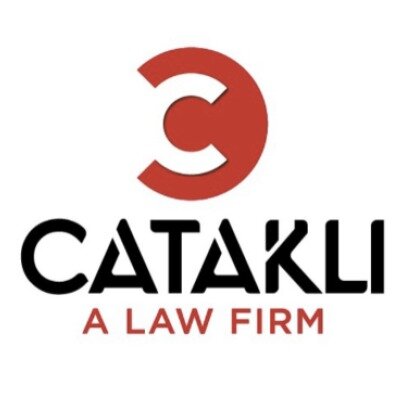Best Employer Lawyers in Luxembourg
Share your needs with us, get contacted by law firms.
Free. Takes 2 min.
List of the best lawyers in Luxembourg, Luxembourg
About Employer Law in Luxembourg, Luxembourg
Employer law in Luxembourg is governed by a comprehensive legal framework designed to protect the rights of both employers and employees. The country is known for its robust labor laws, which are influenced by European Union directives. These laws cover a wide array of employment aspects, including contracts, working conditions, wages, discrimination, leave entitlements, and terminations. Luxembourg's labor market is diverse and multilingual, reflecting its international business environment, and the legal system is equipped to handle various employment-related issues.
Why You May Need a Lawyer
Engaging a lawyer specializing in employment law can be crucial in several situations. Individuals may require legal help when drafting employment contracts to ensure compliance with local labor laws. Dispute resolution is another area where legal assistance is frequently needed, whether it concerns wrongful termination, workplace discrimination, or salary disputes. Moreover, legal guidance is often sought during organizational restructuring, where changes in employment terms can lead to complex negotiations. Lawyers can also be invaluable in navigating the administrative procedures involved with cross-border employment and work permits.
Local Laws Overview
Luxembourg's employer laws are anchored in fairness and transparency, with significant emphasis on employee protection. Employment contracts can be fixed-term or indefinite, and they must comply with the Labor Code, which stipulates minimum conditions like working hours, salary, and notice periods. The law mandates equal treatment irrespective of gender, nationality, or belief, with strict anti-discrimination provisions. Luxembourg also adheres to strict regulations on occupational safety and health. For employers, adhering to social security contributions and tax obligations is mandatory, forming a critical component of the employment relationship.
Frequently Asked Questions
What rights do I have as an employee in Luxembourg?
Employees in Luxembourg have the right to fair wages, safe working conditions, non-discriminatory practices, and adherence to the terms of their employment contract. They are also entitled to paid leave and social security benefits.
What are the typical working hours legally allowed in Luxembourg?
The standard working hours are 40 hours per week, with a maximum of 10 hours per day unless agreed otherwise through collective bargaining agreements or exceptional circumstances.
What should an employment contract include in Luxembourg?
An employment contract should detail job responsibilities, working hours, salary, probationary period (if any), notice periods, and any other specific employment terms agreed upon by both parties.
How does the Luxembourg legal system handle employment disputes?
Employment disputes are usually resolved through negotiation and mediation. If these methods fail, cases can be taken to the Industrial Tribunal, which specializes in employment matters.
What is the probationary period, and how long can it last?
The probationary period in Luxembourg typically ranges from two weeks to six months, depending on the job and the agreement between employer and employee.
How is termination of employment regulated in Luxembourg?
The termination must comply with the terms of the contract and the Labor Code. Employees have rights to notice periods and severance pay depending on their tenure and the circumstances of termination.
What are the laws on maternity/paternity leave?
Maternity leave in Luxembourg is set at eight weeks before and eight weeks after the expected childbirth date. Fathers are entitled to ten days of paternity leave.
Does Luxembourg have minimum wage requirements?
Yes, Luxembourg has a legally set minimum wage, which varies based on the employee's age and qualifications, and is reviewed periodically by the government.
How are disputes regarding cross-border employment handled?
Cross-border employment disputes can involve complex jurisdictional issues, often requiring expert legal advice to address the regulations in both Luxembourg and the employee’s home country.
What is considered discrimination at the workplace?
Discrimination in the workplace can be based on gender, age, nationality, ethnic origin, belief, disability, or sexual orientation. It is illegal and addressed by anti-discrimination laws in Luxembourg.
Additional Resources
Individuals seeking further assistance can reach out to the following resources:
- The Inspectorate of Labor and Mines (ITM) for compliance and workplace safety issues.
- The Chamber of Employees, which supports workers' rights and legal understanding.
- ACEL (Luxembourg Student Association) and ASTI (Association for the Support of Immigrant Workers) for specific demographic support.
- The Luxembourg Bar Association for finding qualified lawyers experienced in employment law.
Next Steps
If you need legal assistance in employment matters, start by evaluating your situation and clarifying the legal issue. Collect any relevant documents or evidence, such as your employment contract, correspondence with your employer, or records of incidents at work. Reach out to a lawyer specializing in employment law in Luxembourg, who can provide tailored advice and represent you as needed. Consider contacting one of the recommended resources for initial guidance and support.
Lawzana helps you find the best lawyers and law firms in Luxembourg through a curated and pre-screened list of qualified legal professionals. Our platform offers rankings and detailed profiles of attorneys and law firms, allowing you to compare based on practice areas, including Employer, experience, and client feedback.
Each profile includes a description of the firm's areas of practice, client reviews, team members and partners, year of establishment, spoken languages, office locations, contact information, social media presence, and any published articles or resources. Most firms on our platform speak English and are experienced in both local and international legal matters.
Get a quote from top-rated law firms in Luxembourg, Luxembourg — quickly, securely, and without unnecessary hassle.
Disclaimer:
The information provided on this page is for general informational purposes only and does not constitute legal advice. While we strive to ensure the accuracy and relevance of the content, legal information may change over time, and interpretations of the law can vary. You should always consult with a qualified legal professional for advice specific to your situation.
We disclaim all liability for actions taken or not taken based on the content of this page. If you believe any information is incorrect or outdated, please contact us, and we will review and update it where appropriate.














